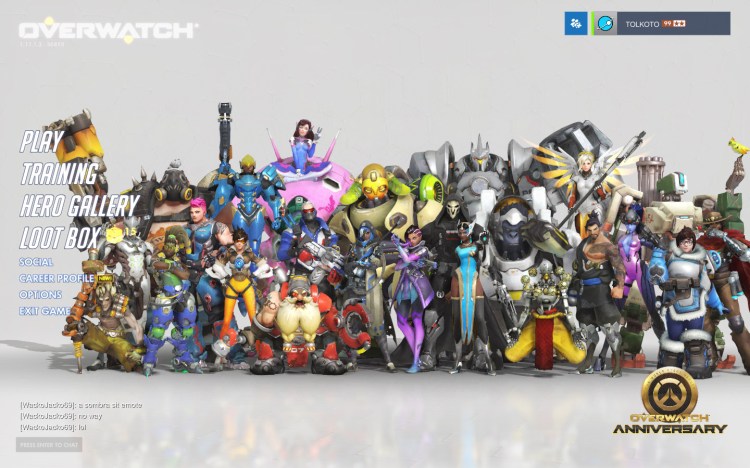Blizzard has announced today the it has secured owners for the first seven teams in its Overwatch League, a professional, city-based esports organization centered around the hit team-based shooter. The Overwatch League is slated to start some time later this year.
The esports economy will grow 41.3 percent to $696 million in 2017, according to market researcher Newzoo. If Overwatch League succeeds, it could help grow competitive gaming even more. The owners, and the cities that will host their teams, are below:
- Robert Kraft, chairman and chief executive officer of the Kraft Group and the New England Patriots (Boston)
- Jeff Wilpon, co-founder and partner of Sterling.VC and chief operating officer of the New York Mets (New York)
- Noah Whinston, chief executive officer of Immortals esports group (Los Angeles)
- Ben Spoont, chief executive officer and cofounder of Misfits Gaming (Miami-Orlando)
- Andy Miller, chairman and founder of NRG Esports (San Francisco)
- NetEase (Shanghai)
- Kevin Chou, cofounder of Kabam (Seoul)
This list includes some who are involved with traditional sports organizations, specifically Kraft and Wilpon. This is following a trend that started last year of major sports teams getting into esports, notably the Philadelphia 76ers. Some owners also already have a history with esports, like Noah Whinston (no relation to the Overwatch character) and Ben Spoont.
Whinston is the chief executive officer of Immortals, an esports organization that has teams competing in League of Legends, Counter-Strike: Global Offensive, Super Smash Bros., and Overwatch. Spoont’s Misfits Gaming also runs teams in League of Legends, Counter-Strike: GO, and Overwatch. Andy Miller’s NRG Esports operates in Overwatch, Counter-Strike: GO, Hearthstone, Rocket League, and Vainglory.
June 5th: The AI Audit in NYC
Join us next week in NYC to engage with top executive leaders, delving into strategies for auditing AI models to ensure fairness, optimal performance, and ethical compliance across diverse organizations. Secure your attendance for this exclusive invite-only event.
NetEase is an interesting owner for the Shanghai team. That company operates many of Blizzard’s games in China. We asked Blizzard if this would be a conflict of interest going forward for the league, and we’ll update this story if the respond.
Five of the seven teams will be based in the U.S., while China and South Korea each get one.

Above: The Overwatch World Cup at BlizzCon in November 2016.
Overwatch has been a big hit for Blizzard since it launched last May. It already has over 30 million players. But Blizzard has ambitious plans for the shooter outside of growing its player-base. The Overwatch League will attempt to make the most mainstream esports organization yet. Most competitive gaming focuses on private teams or individual players. The Overwatch League is instead adopting the professional sports model of having teams headquartered in and representing major cities.
But Blizzard will have challenges making Overwatch esports succeed. Right now, the competitive Overwatch community is suffering from low viewership. Part of the problem, however, is that many are waiting to hear more about Blizzard’s plans for the Overwatch League. It could be that the League itself is what jumpstarts Overwatch esports.
“From my point of view, it’s the one game that’s been designed to be an esports game from the ground up on day one,” Chou, the owner of the Seoul team, told GamesBeat.
“This isn’t just us playing against other Korean teams,” Chou said. “It’s Seoul versus New York, Seoul versus L.A., Seoul versus London, Seoul versus Shanghai.”
Teams will receive an equal share of all league-wide net revenues that come through things like advertising, ticket sales, and broadcast rights revenues. Teams will also get to keep all local revenues that they generate up to a set, undisclosed amount each year. After they reach that set amount, that money goes to the league’s shared revenue pool. Each team can also hold up to five amateur, local events each year.
Teams can also earn money from in-game Overwatch items that Blizzard will sell — cosmetic things like in-game sprays featuring team logos. Blizzard says that 50 percent of the money earned from these purchases will go to the respective teams.


